Loading...
Text-Only Version
When we think about health, we often think about the physical
health of our bodies. Our bodies are important and keep us safe, and we deserve complete autonomy and control over what we put ourselves and our bodies through. In addition to body health, however, it is important to recognize the importance of maintaining good mental health. Mental health is often brushed aside but is extremely important when it comes to taking care of our total health. Our minds, beliefs, and thoughts influence the way we handle stress, find joy, and more. When we can cope with the different things that life throws our way, it empowers us to build a more meaningful and joyful life.
Mental health support can be difficult to access. For communities of color or for people who hold marginalized identities, there may not be enough support or access to resources. In rural areas, lack of transportation can make finding help difficult. It may be too expensive, when services are not covered by insurance or the co-pay is too high. If you’ve experienced any of this, you’re not alone and you deserve mental health care if you need it.
There are tools, points of support, and other helpful practices out there that can help. Here is a brief list (and nowhere near exhaustive) of resources or ideas to consider when looking for you need mental health support:
- Friends and (Found) Family
We are social creatures and a kind, caring support system is often vital for healthy development and lives we feel are worth living. If you feel alone, we encourage looking for and creating healthy relationships with people in your school, workplace, etc. Talking to someone you trust about your problems can make things easier to deal with.
Family does not always have to be people we are related to by blood. Chosen families are a beautiful and vital part of people’s lives that can affirm your identity and support your growth. There are many LGBTQ+ and gender affirming spaces that create loving family systems like these.
- Local Community Organizations
Organizations such as the YMCA sometimes offer support, counseling, temporary housing, and group therapy programs. Community organizations can be really helpful for skills building and finding new relationships.
If you’re unsure of the organizations in your area, reach out to us! We may be able to connect you with resources in your area. Chat, email or post on our forum here, or call us at 1-800-RUNAWAY (1- 800-786-2929)
- Sliding Scale or Online Therapy
Sliding scale therapy means the therapist may be able to change their rates based on your income or situation. This information can usually be found on that therapist or practice’s website or therapist profiles on websites like Psychology Today. There are online therapy agencies that can be found via Google. Some of them may have more affordable rates than an in-person option and accept insurance.
Click here for a more in-depth guide on finding affordable therapy.
- Journaling
Journaling can be a useful way to get overwhelming thoughts out and down on a page. If you don’t enjoy writing, most phones are equipped with voice recording features or notes app that can help record your thoughts and even transcribe it on to your screen.
Some questions you could answer as you’re journaling include:
What is bothering me right now?
What am I thankful for?
What am I experiencing physically right now?
What is my mood, 1-10?
What can I change? What can’t I change?
- Mindfulness or Grounding Techniques
Deep breathing can be really helpful for those with anxiety or when experiencing a panic attack. Click here for a guided breathing video to help focus during a difficult time. There are other exercises that you can turn to as well.
If you have access to the 5 main senses, one
great exercise is called 5, 4, 3, 2, 1. Based on your own ability, you can adjust or change what senses are most accessible to you. In moments of anxiety, say out loud:
- Five things you see
- Four things you can touch
- Three things you can hear
- Two things you can smell
- One thing you can taste
- Contact NRS
Here at NRS, we offer 24/7 free, confidential support for young people in crisis. We won’t judge you or your experiences, and we won’t tell you what to do. We can provide emotional support, ideas and suggestions, and help brainstorm safety plans or coping tools. We also maintain the largest database of youth-serving resources in the country, and may be able to connect you with local help.
If you need help finding community organizations or possible therapy options, we would be happy to discuss those with you and see if we know of any in your area.
Mental health is so important, and we are all deserving of compassionate support and care. If you happen to live in circumstances in which services are inaccessible, there are always places to turn to that can help. We at NRS are always here to help connect you with resources and develop a plan for taking care of your mental health.




